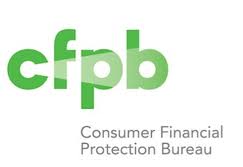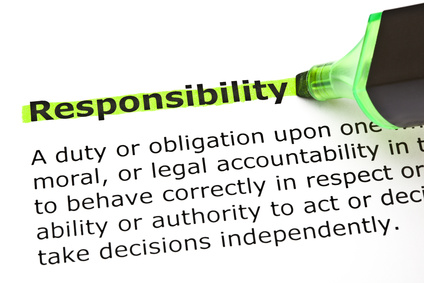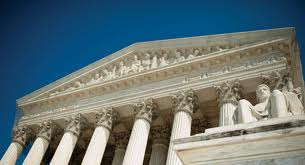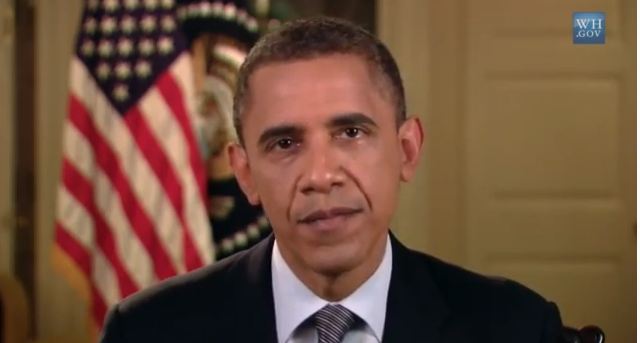Here are the slides from my presentation The Consumer Financial Protection Bureau’s Impact on the Practice of Law made to the New Jersey Creditor’s Bar Association (NJCBA) on February 19, 2013. The NJCBA is a terrific organization supporting attorneys engaged in the practice of collection and credit law in New Jersey. Anyone interested in membership should drop me a line at dsm@mnlawpc.com.
What would it be like to undergo a CFPB examination? What will be the CFPB’s focus in examining debt purchasers and what methods will the CFPB use to gather information about their operations? Find out at the DBA International Conference next week where I’ll be presenting Ready or Not, Here Comes the CFPB with some of the best and brightest on this topic — my colleagues Alan Kaplinsky and Chris Willis from Ballard Sphar, who bring you CFPBMonitor.com, and Tomio Narita from Simmonds & Narita LLP, author of the FDCPA Defense Blog. More information about DBA International and its Annual Conference in…
The Fourth Circuit Court of Appeals held that a debt collector did not violate the federal Fair Debt Collection Practices Act (“FDCPA”) when it made multiple calls to a third party in an effort to locate a debtor. In Worsham v. Accounts Receivable Management, filed yesterday, a debt collector, who was unable to locate a debtor, instead placed 10 telephone calls to the debtor’s brother-in-law, Worsham, in May 2010. Worsham answered two of the calls and heard an automated message prompting him to press “1” if he was the debtor or “2” if he was not. On one occasion Worsham pressed “2” and then hung…
Thanks to all who attended my November 9 presentation in New York on Ethics and Consumer Financial Services Law. You can obtain a copy of the powerpoint here: Ethics6. The handout can be accessed here: Avoiding ethical pitfalls 20121105.
I have today’s transcript from oral argument before the Supreme Court in Marx v. General Revenue. Ms. Marx lost her Fair Debt Collection Practices Act (“FDCPA”) case against General Revenue. Under Federal Rule of Civil Procedure 54(d), which permits the court’s clerk to tax costs to a prevailing party, the trial court taxed her with General Revenue’s defense costs — not attorneys fees, just costs, and limited ones at that. Marx appealed to the Tenth Circuit Court of Appeals and argued she should not have to pay these costs because the FDCPA, at section 1692k(a)(3), only exposes her to costs if she brought the…
I ran across this post at the State Bar of Michigan Blog (http://sbmblog.typepad.com). It is the first state bar organization to mention the regulation of attorneys by CFPB fiat. There you have it — go Michigan, you’re #1! You can read it for yourself here. Let me know if your State or local bar has weighed in. wellesenterprises
Election Day is next Tuesday and it is also an opportunity to learn more about the Consumer Financial Protection Bureau’s plans to regulate attorneys and small businesses. Join me at 11:30 am ET along with Alan Kaplinsky, Chris Willis and John Culhane of Ballard Spahr for this webinar on the Larger Participant Rule issued by the Consumer Financial Protection Bureau last week. I’ll be discussing the CFPB’s plan to regulate even small businesses and law firms it deems as “service providers.” Ballard Spahr publishes the cfpbmonitor.com which is a must read for anyone connected to the consumer financial services industry. This…
In his October 27, 2012 weekly address to the Nation, President Obama praised recent efforts of the Consumer Financial Protection Bureau. Among the highlights: “[The CFPB’s] only mission is to fight for you.” “[The CFPB] recently ordered three big credit card companies to return more than $400 million dollars to folks who were deceived or mislead . . . that’s what Wall Street Reform is all about . . .” “[Republicans in Congress] backed by an army of financial industry lobbyists, they’ve been waging an all out battle to delay, defund and dismantle these new rules.” ” . . .the true engine of job creation in this country is the private sector —…
Last night, the Consumer Financial Protection Bureau (CFPB) released its Larger Non-Bank Participant Rule. The Rule is available here. In addition to releasing the Rule, the CFPB released an examination manual and a fact sheet. Some highlights: The Rule is effective January 2, 2013 — 70 days from today. The Rule provides a description of the examination process. It does not apply to entities that originate credit. A person is subject to the Rule if they have more than $10 million in “annual receipts” resulting from consumer debt collection. “Annual receipts” is derived from a three-year average of receipts. “Annual receipts” does not include “those receipts that…
As Fall brings a chill to early morning weather, a string of federal agency enforcement actions are supplying a lot of unwanted heat for the consumer financial services industry. Today, the Federal Trade Commission announced that it has entered into a Consent Order with Equifax Information Services LLC, over charges that it had allegedly improperly sold lists of consumers who were late on their mortgage payments. The Consent Order requires Equifax to pay nearly $393,000 to the FTC. In a separate action, an Equifax customer will pay the FTC civil penalties of $1.2 million under a Consent Order concerning its alleged use of the same lists…
A City of New York regulation that sought to regulate attorneys who practiced debt collection law, was struck down Wednesday by a Federal Court sitting in the Eastern District of New York because it violated New York’s Constitutional separation of powers. In Eric Berman, P.C. v. City of New York the court found that New York City had exceeded its authority under New York law by enacting a regulation which dictated how licensed New York attorneys may provided debt collection legal services. The regulation attempted to distinguish attorneys who regularly send debt collection letters — what it described as attorneys who “regularly…











